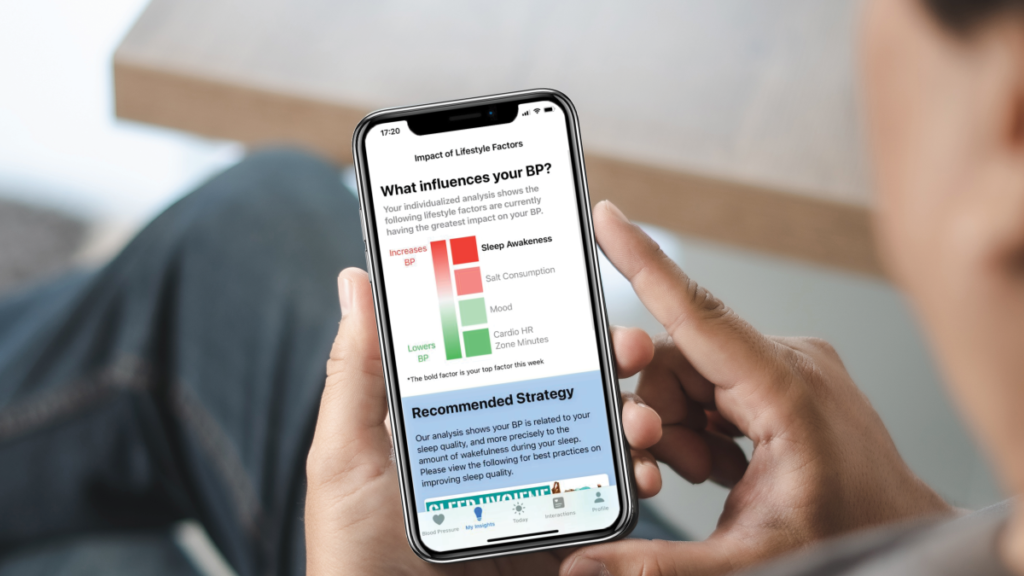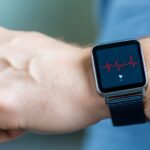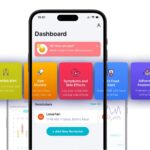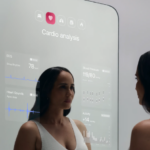Can AI lower blood pressure? Researchers of the University of California in San Diego explored if AI-powered digital health programs can help manage hypertension and reduce clinician workloads. They conducted a study to find out.
How the Program Worked
This innovative program, sponsored by the University of California, San Diego, used advanced technology to provide personalized lifestyle guidance to participants. Here’s how it worked.
AI & Blood Pressure: Data Collection
The program collected data from various sources to tailor its recommendations:
Wearable Fitness Trackers
These devices monitored participants’ physical activity levels, providing real-time data on steps taken, calories burned, and overall activity.
Blood Pressure Monitors
Participants regularly measured their blood pressure using these monitors. The data was automatically uploaded to the program.
Daily Questionnaires
Participants answered daily questions about their sleep, stress levels, diet, and other lifestyle factors. This self-reported data helped the program understand their daily habits and challenges.
AI Blood Pressure: Personalized Recommendations
Using the collected data, the AI-powered program generated customized weekly recommendations for each participant. These recommendations focused on four key areas:
Activity Levels
The program suggested specific exercises and physical activities to help participants stay active and improve their cardiovascular health
Sleep
It provided tips on improving sleep quality, such as maintaining a regular sleep schedule and creating a restful sleep environment.
Stress Management
The program offered strategies for managing stress, including mindfulness exercises, relaxation techniques, and time management tips.
Diet
Participants received dietary recommendations tailored to their needs, emphasizing heart-healthy foods and balanced nutrition.
Study Details & Results
The study involved 141 adults with stage 2 hypertension (blood pressure ≥140/90 mmHg). Over 24 weeks, participants used the AI-powered program to manage their condition.
The results were impressive:
Average Decrease in Blood Pressure
Participants saw an 8 mmHg reduction in systolic blood pressure and a 6 mmHg reduction in diastolic blood pressure.
Higher Starting Blood Pressure
Those with higher initial blood pressure experienced even greater improvements, with a 14 mmHg drop in systolic and a 9 mmHg drop in diastolic readings.
High Engagement and Minimal Clinician Follow-Up
One of the standout features of the program was its ability to keep participants engaged. An impressive 92% of participants used the program weekly, thanks to its personalized and targeted approach. This high level of engagement likely boosted participants’ motivation, as they could see how specific lifestyle changes directly influenced their blood pressure.
Moreover, only 6% of participants required human clinician follow-up during the 24-week study. The AI system automatically monitored blood pressure readings and provided personalized guidance. It flagged clinicians only when critical values were detected, allowing a small team of clinicians to manage hypertension care for a large patient population efficiently.






